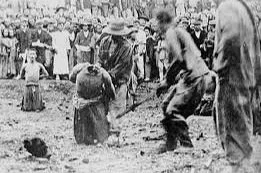Japan Invades China
The Second Sino-Japanese War
In The Girl in the Glass, when Declan encounters a group of soldiers, he quickly realizes he isn’t in Germany anymore.
Declan was correct, the troops weren’t German, and a singular clue pointed to the horrific reason. The same simple flag flew from every mast and was painted onto each vehicle. A white field interrupted by a solitary, central red circle, the iconic symbol from the land of the rising sun.
Unbeknownst to Declan, it’s 1941, and he’s landed in China, well behind enemy lines of the advancing Japanese Imperial Forces. A few years earlier, in 1937, the Empire of Japan invaded mainland China, leading to the Second Sino-Japanese War and starting World War II in Asia. The large-scale military conflict lasted until 1945, with the brutal war characterized by intense fighting, occupation, and horrifying cruelty.
Japanese Imperial Forces invaded and occupied large portions of mainland China, including Nanjing, China’s capital city. In what is known as the Nanjing Massacre, during six weeks in 1937, the invading Japanese forces committed widespread atrocities, including torture, rape, and mass killings. Imperial Japanese Army forces brutally murdered hundreds of thousands of people, soldiers and civilians, including women and children.
In The Girl in the Glass, Declan meets survivors of the brutality. As the professor learns, he is surrounded by:
“Several hundred Chinese resistance fighters. Men who lost loved ones during the Nanjing Massacre, here to exact revenge. Soon as we figure out what the Imperial Army is doing here, they’ll make sure every Nihonjin down there never returns home.”
As a result of Nanjing’s fall, the Chinese government relocated to Chongqing, in the Chinese interior. By 1940, the war reached a virtual stalemate, with Japan controlling coastal and inland areas but unable to fully subdue China. Following the atomic bombings of Hiroshima and Nagasaki, Emperor Hirohito formally surrendered on September 2, China celebrating Victory Day on September 3, when the war ended on Chinese soil.
Japanese soldiers in Nanjing
Beheadings
Heads of Chinese soldiers & citizens
Endless piles of bodies
Japan’s Emperor Hirohito surrenders




